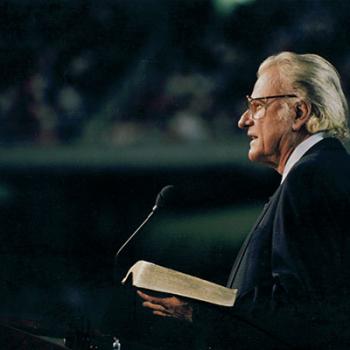I have heard numerous stories from my pastor recalling the days he worked with the LAPD, yet the stories which stick out most are always those he has told about receiving the call to go to the scene of an individual’s death. The way they died has not stuck out so much as my pastor’s simple reminder that death generally comes when we least expect it. It more often happens in the midst of the mundane rituals we perform daily.
The rare individual has time to prepare for their death. The rare individual dies peacefully.
A man steps out of his shower and grabs the towel to dry off, only to collapse on the floor due to a heart attack. Another individual lights up a cigarette and stumbles headlong over a small rock, hitting their head just right. A father gets in his car to drive home after a long day of work – and nearly makes it in time for dinner.
For a creature with surprising durability, humans have a knack for dying in very insignificant ways.
Yet we seek to avoid death at all costs. We do all sorts of things to delay the inevitable route to the grave, acting as if what we are doing gives us genuine comfort. If I eat just right and exercise I can avoid a heart attack. If I analyze all the risks of this activity, I can minimize my potential for harm. Don’t misunderstand me – I am not suggesting a lack of wisdom in proper diet and exercise, or thinking through something before doing it and invariably regretting incredible folly. I am simply suggesting that the canned idea of “peace of mind” is an incredible misnomer because you have an expiration date. Death is the unavoidable, yet profound equalizer for all mankind. The death rate is unanimous.
This is why Solomon says without hesitation, “It is better to go to a house of mourning than to go to a house of feasting, because that is the end of every man, and the living takes it to heart” (Eccl. 7:2). All go to the same place in the end; that which is dust shall return to the dust (Eccl. 3:20).
Why though is it better for one to be among the dead than among the living?
Funerals have a profound way of reminding us of our frailty and our certain end. Death reminds us that we too will die and it is only a matter of when. Death reminds us that only the fool continually chases pleasure instead of soberly approaching his destiny (Eccl. 7:4).
The inevitable question arises then – how do we die well?
Contrary to popular thought, regardless of what you will do on this earth, time will swallow all memory of you (Eccl. 1:11; 6:10-12). The pursuit of wisdom results in increasing pain (Eccl. 1:18) and while it is better than folly (Eccl. 2:13), it too is vanity (Eccl. 2:15). You will not find lasting satisfaction in your work or the spoils of your profits (Eccl. 2:22-23; 4:4-8; 6:7-9), even though it is a gift of God to the man who sees good in all his labor (Eccl. 3:13).
You will not find equity and justice from those who purport to give it – and this too will be your misery (Eccl. 3:16); indeed, you may even congratulate the dead for being free from the oppression of evildoers or say it is better to have never existed (Eccl. 4:1-3).
Money will not satisfy your longing (Eccl. 5:10-17) – it is far better to simply enjoy the gift of God in what you can than chasing after an esteemed status, though money still winds up keeping you occupied and distracted to a degree (vv. 18-20). Yet still, one who has not toiled for your wealth will come to enjoy it (Eccl 6:1-2).
The life of the wicked is prolonged whereas the righteous meet an untimely death (Eccl. 7:15), yet even his wicked devices shall ensnare him in the end (Eccl. 8:8). Again, justice is slow to rightfully punish the wicked, whose deeds will soon be forgotten (Eccl. 8:10-12). Surely, though it is better to openly fear the Lord because the general principle is that it will go well for them, righteous men meet the same end as the wicked man (Eccl. 8:12-14; 9:2-6).
The young and the old alike shall die (Eccl. 12:6-8). Go then, and enjoy what you have been given from God during your fleeting life (Eccl. 9:7-9), yet fear God and keep His commandments, because this applies to all mankind. God shall bring judgment to every act, everything which has been hidden, whether good or evil (Eccl. 12:12-14).
If you want to die well, enjoy your life to the glory of God. Enjoy good food and drink; take pleasure in your work, whatever it may be; take pleasure in the wife of your youth and delight in her bosom; rejoice in your children if you have them; take time for leisure and rest; pursue wisdom rather than folly. Take utter joy in the fact that death has been defeated in Christ and that for those in Christ, there is an actual, substantial hope found in His resurrection.
If you want to die well, fear God and keep His commandments. Let the clarion call of the gospel be heeded – for none shall stand before God in their own merit. Everything will be judged. Everything.
Image: CC0 (Public Domain)













